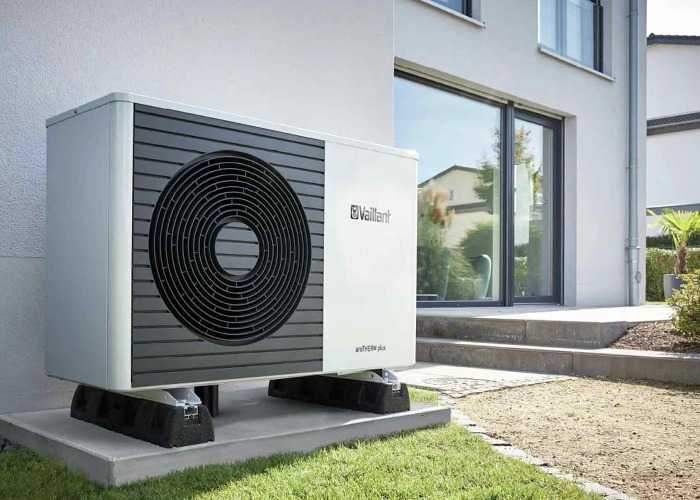
What Can Heat Pumps Power ?
Heat pumps are innovative devices gaining popularity for their ability to efficiently heat and cool our homes. But, many are still unaware of their ability to do so much more besides. With so much untapped potential, heat pumps offer a wealth of exciting possibilities. Yet as well as being able to revolutionise the way we use energy, how exactly do they work, what are their limitations and just what can they really power?
Here, the Energy Efficiency team at City Plumbing further unlocks the potential of heat pumps. Whether you're looking to maximise your energy efficiency or seeking sustainable solutions, we offer some valuable insights into these innovative designs.
How Do Heat Pumps Work?
Heat pumps are energy-efficient devices that transfer heat from one location to another. They work by utilising the principles of refrigeration, in the same way that a refrigerator cools its interior.
A typical heat pump consists of four main components including an evaporator, a compressor, a condenser, and an expansion valve. The process begins with the evaporator, which absorbs heat from the surrounding environment, such as the air or ground. The absorbed heat is then compressed by the compressor, increasing its temperature. The heated refrigerant is then passed through the condenser, where it releases the heat into the desired space. Finally, the refrigerant is expanded through the expansion valve, lowering its temperature. The cycle then repeats.
Heat pumps can extract heat from various sources, including the air, ground, or water. Such versatility makes them efficient heating and cooling solutions for different climates and scenarios. By harnessing the natural heat present in the environment, heat pumps offer a more sustainable and cost-effective alternative to traditional heating and cooling systems.
The Types of Heat Pumps
Several types of heat pumps are available, each with its own advantages and applications. The two that tend to be the most common include air-source heat pumps and ground-source heat pumps.
Air Source Heat Pumps
An air source heat pump will extract heat from the outdoor air and transfer it indoors during the heating season. In the cooling season, it will remove heat from the indoor air and release it outdoors. Air-source heat pumps are easy to install and require minimal space, making them a popular residential choice.
Ground Source Heat Pumps
Also known as geothermal heat pumps, a ground source heat pump utilises the stable temperature of the ground to provide heating. They extract heat from the ground during the winter and release heat into the ground during the summer. Ground-source heat pumps are highly efficient and can significantly reduce energy consumption. However, they require more extensive installation and are typically more expensive upfront.
Water Source Heat Pumps
These heat pumps extract heat from a water source, such as a lake, river, or well. They can provide heating and cooling for large buildings and industrial applications. Water-source heat pumps are highly efficient and can utilise the thermal energy present in water bodies. However, they do require access to a water source and may have higher installation costs. Proposed installations are closely restricted due to compliance with government agencies, i.e. the Environment Agency.
Applications of Heat Pumps
Heat pumps have a wide range of applications beyond heating and cooling. These are just some of the exciting possibilities that they offer:
Heat Pumps for Heating and Cooling
The primary application of heat pumps is to provide heating and cooling for residential and commercial buildings. By extracting heat from the air, ground, or water, heat pumps can efficiently warm or cool the indoor environment, ensuring optimal comfort year-round.
Heat Pumps for Hot Water
Heat pumps can also be used to heat water for domestic use. By utilising the surrounding air or ground, heat pumps can heat water more efficiently than traditional electric or gas water heaters. This can lead to significant energy savings and reduced water heating costs.
Heat Pumps for Pool Heating
Heat pumps offer an excellent solution for heating swimming pools. By extracting heat from the air or ground, heat pumps can efficiently heat pool water, extending the swimming season and maximising enjoyment. Pool heat pumps are energy-efficient and can provide a cost-effective alternative to gas or electric heaters.
Heat Pumps for Industrial Processes
Heat pumps can be utilised in various industrial applications, including heating or cooling processes, drying, and refrigeration. By harnessing the thermal energy present in the environment, heat pumps can provide sustainable and energy-efficient solutions for industrial operations.
Harnessing the Power Potential of Heat Pumps
Heat pumps have the potential to revolutionise the way we use energy, offering efficient and sustainable solutions for heating, cooling, and more. By using the thermal energy present in the environment, heat pumps can reduce energy consumption, lower utility bills, and contribute to a greener future. And, as heat pumps become more efficient and versatile, more of us can continue to maximise these energy-efficiency solutions.
If you’re considering adding a renewable energy source in your own home or business, get in touch with the Energy Efficiency team at City Plumbing. Experts in renewable technology, we’re perfectly placed to advise you on the best solutions of low carbon technologies to help you create a greener and more energy-efficient property.